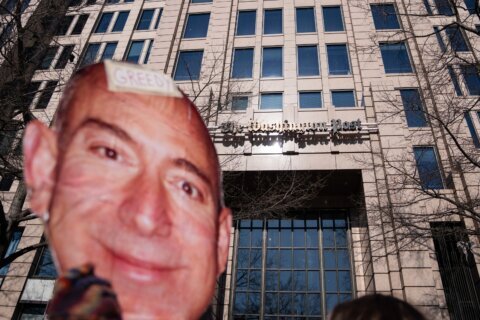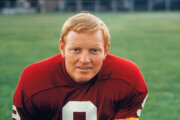The rock-climbing film “Free Solo” just won the Oscar for Best Documentary earlier this week.
And if you missed it, it airs Sunday on National Geographic Channel as well as Amazon Prime.
The film follows death-defying rock climber Alex Honnold as he becomes the first person ever to climb Yosemite’s 3,000-foot-tall El Capitan mountain peak without any ropes or safety gear.
Filmmakers Elizabeth Chai Vasarhelyi and Jimmy Chin have experience in this realm, having chronicled three climbers on the Himalayas’ Mount Meru in the documentary “Meru” (2015).
In “Free Solo,” they take that experience to the next level, combining drone shots for dizzying high angles and daring close-ups by cameramen on harnesses so that we hold our breath with each rocky step and each rosin-caked hand grasp. Time and again you’ll wonder from a pure filmmaker perspective, “How in the world did they even accomplish that shot?!?”
They also do a nice job of showing the context of the climb, starting with an extreme wide angle of the cliff that zooms into Honnold (or vice versa). Meanwhile, motion graphics show text on the screen, numbers to denote the altitude and a white jagged line charting his path.
While Act 1 is thrilling in his test climbs, the film sags a bit in the grounded Act 2. It’s here that we see one-on-one interviews with Honnold, who said he was a bit of a “dark soul” as a child, and his mother, who reveals his father was verbally abusive and likely had Asperger’s. The blank stares of his childhood photos are intercut with Honnold’s present-day brain scan.
Even more telling, we see detached interactions with his girlfriend Sanni McCandless, who met him at a book signing and appears nervous at his dangerous vocation of choice. It’s not a film critic’s job to judge the health of a romantic relationship — we don’t know these people in real life — but based on the on-screen presentation, their interactions suggest a disconnect.
I suppose this is the filmmakers’ point of the juxtaposition — the very thing that makes him fearless on the mountain makes him awkward in his personal life — but it doesn’t make the protagonist particularly likable. Unlike the charismatic Timothy Treadwell tempting nature in “Grizzly Man” (2005) or Bryan Fogel pushing his limits in “Icarus” (2017), Honnold is hard to get to know beneath his cold exterior. We’re rooting for him to complete the climb as an athletic feat, but the spiritual importance of the climb is merely referenced rather than fully revealed.
Thankfully, the film regains its footing in Act 3 with the thrill of the climactic “free solo” climb. You’ll hold your breath as he makes his way up the trickier slopes and you’ll close your eyes as the cameramen themselves cover their eyes while watching from behind the video monitors.
If there’s one minor disappointment it’s the handling of the climb’s most difficult pitch where Honnold must choose between the slippery “Teflon Corner” or the “Boulder Problem.” He chooses the latter, which requires either (a) a “double dyno” leap to an adjacent wall at a 45-degree angle or (b) a karate kick to gain traction on the wall face before moving his hands.
We watch his failed test jumps as he plummets on the harness. This builds anticipation for a life-or-death leap, but when the big moment arrives, he performs the karate kick. It’s the less thrilling option based on our expectations, and while the karate kick maneuver is briefly mentioned earlier, it might feel like a false payoff to laymen unfamiliar with rock climbing.
Thus, the documentary feels more like a gripping piece of television than a fully fleshed out feature-film narrative. As a visual feat, it absolutely deserves to win Best Documentary, but as an emotional experience, Tim Wardle’s “Three Identical Strangers” and Morgan Neville’s “Won’t You Be My Neighbor” are bigger heart tuggers (they weren’t even nominated). Either way, the athletic feat is undeniably impressive and the footage is inherently breathtaking.









